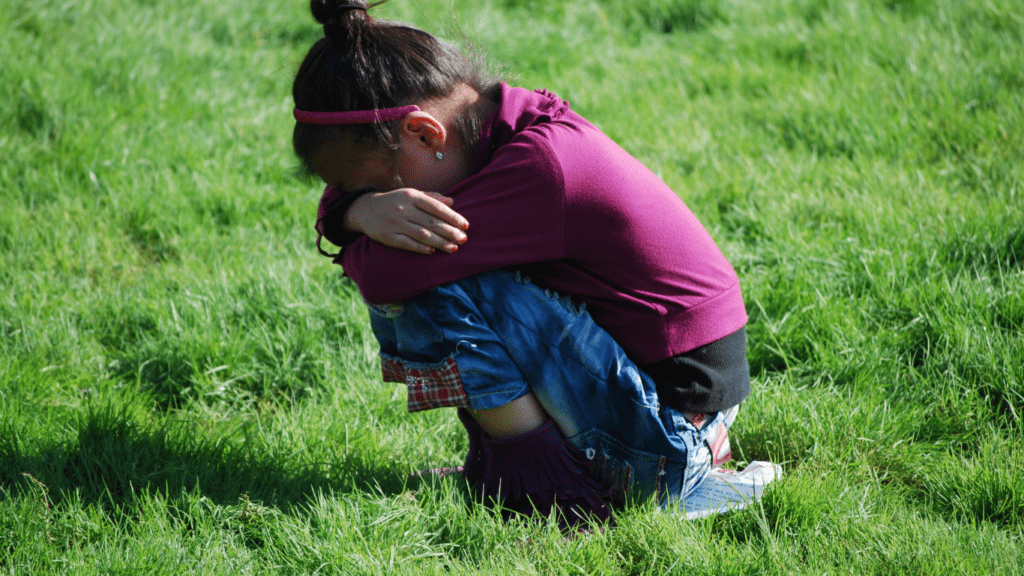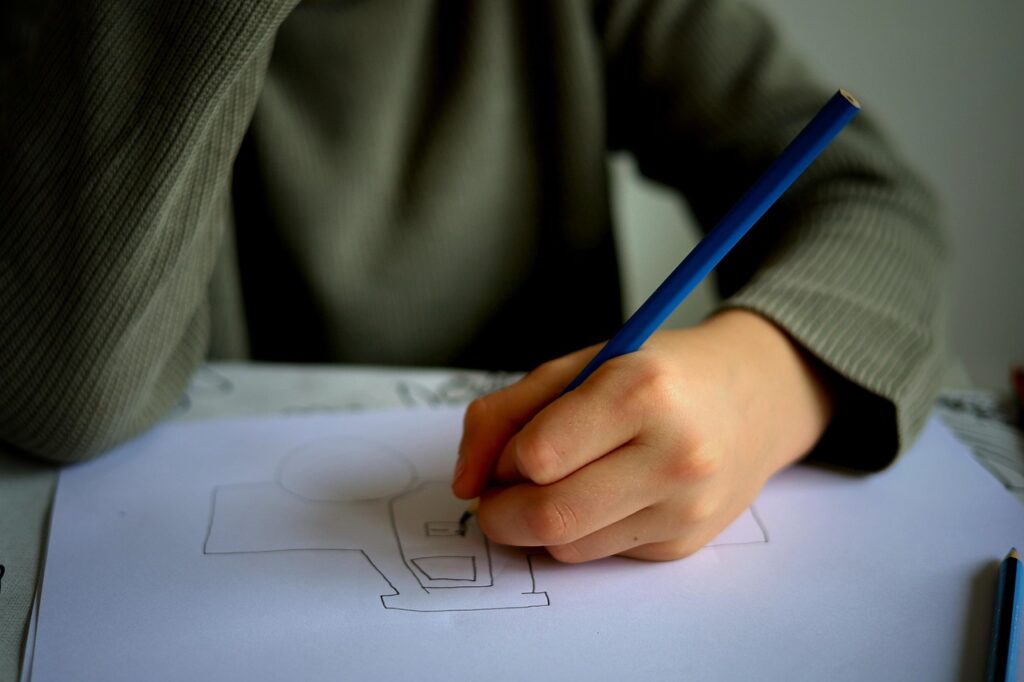Understanding Mental Health in Children
Recognizing mental health issues in children is crucial for timely intervention and support. Differentiating between normal behavior and concerns is the first step.
Identifying Normal Behavior vs. Concerns
Children often exhibit a wide range of behaviors as they grow. Distinguishing between typical developmental behaviors and those signaling underlying issues can be challenging. Normal behavior changes with age, such as tantrums in toddlers or mood swings in teens.
However, if a child shows persistent sadness, anxiety, or aggression, it’s essential to consider these as potential red flags. For example, consistent withdrawal from friends or loss of interest in favorite activities deserves attention.
Sudden declines in academic performance or changes in sleeping and eating patterns also warrant concern.
The Importance of Early Intervention
Early intervention can significantly influence a child’s mental health outcomes. Timely action reduces the severity and duration of mental health issues. For instance, addressing anxiety or depression early can prevent escalation into more severe conditions.
Professional help, such as therapy or counseling, provides children with coping strategies and emotional support. Schools often offer resources like counseling services, which can be a good starting point.
Certainly, involving healthcare providers ensures that children receive comprehensive care tailored to their specific needs.
Key Signs of Mental Health Issues in Children
Recognizing mental health issues early can significantly improve a child’s well-being. Parents should remain vigilant for several key signs that indicate their child might need professional help.
Changes in Mood and Behavior
Sudden shifts in mood and behavior often signal potential mental health issues. Persistent sadness or irritability, mood swings, aggression, or unexplained fears suggest deeper concerns. For instance, children might exhibit intense anger or withdraw from family activities.
Look for behaviors like excessive crying or refusing to engage in formerly enjoyable tasks. If these changes persist, it’s crucial to seek help.
Problems at School
Academic struggles can reflect mental health issues. Look for declining grades, difficulty concentrating, or a sudden disinterest in schoolwork. Regular complaints about school or frequent visits to the nurse might indicate stress or anxiety.
Moreover, disruptive behavior, frequent absences, or conflicts with peers and teachers should raise concerns. Teachers often notice shifts, so maintaining communication with them can provide valuable insights.
Physical Symptoms and Changes
Mental health issues manifest physically too. Regular headaches, stomachaches, or unexplained pain without any medical basis are common. Changes in eating habits, such as loss of appetite or overeating, and significant weight fluctuations might indicate depression or anxiety.
Listen to children who complain about fatigue or insomnia; these could be symptoms of mental distress. If physical symptoms persist without an identifiable cause, seek professional advice.
When to Consider Professional Help
Identifying when a child needs professional mental health help is crucial for early intervention and effective treatment. Clearly evaluating the symptoms’ severity and consulting with school counselors or teachers is often a good starting point.
Evaluating the Severity of Symptoms
Assessing the severity of your child’s symptoms involves observing their behavior closely.
- Noticeable changes in mood or personality, such as increased irritability or withdrawal, can signal deeper issues.
- Persistent symptoms lasting several weeks, especially if they interfere with daily life, indicate the need for professional help.
- Keep track of behaviors like aggression, sadness, anxiety, and disruptions in sleep or eating patterns.
- Frequent complaints of physical problems like headaches or stomachaches can also suggest emotional distress.
- Document these observations to provide accurate information to healthcare professionals.
Consulting with School Counselors and Teachers
School counselors and teachers often observe children’s behavior in different social settings, providing unique insights into their mental health. If a child exhibits concerning behaviors, such as persistent inattentiveness or difficulty interacting with peers, consult with their teachers.
Teachers can offer valuable feedback on academic and social interactions and may suggest whether additional support is needed. School counselors can evaluate the child’s behavior and recommend appropriate steps. Use their observations in conjunction with your own to determine if professional help is necessary.
Choosing the Right Professional

Selecting the right mental health professional can make a significant difference in your child’s well-being. It’s crucial to understand the various options and what to expect from therapy sessions.
Types of Mental Health Professionals
Different mental health professionals offer unique expertise and services. It’s important to choose one that fits your child’s needs.
- Child Psychologists: Specialize in diagnosing and treating psychological disorders in children. They use a variety of therapeutic techniques to help children cope with emotional and behavioral issues.
- Child Psychiatrists: Medical doctors specializing in mental health. They can prescribe medication and provide therapy for more severe mental health conditions.
- Licensed Clinical Social Workers (LCSWs): Provide counseling and support, helping children and families manage life’s complications. They often connect families with additional resources.
- Marriage and Family Therapists (MFTs): Focus on family dynamics, offering therapy to improve communication and resolve conflicts within family units.
- School Counselors: Available within educational settings to support students’ mental health, offering initial assessments and referring to external specialists if needed.
What to Expect from Therapy
Understanding what happens in therapy can help set realistic expectations and prepare your child for the experience.
- Initial Assessment: The first few sessions will involve an in-depth evaluation of your child’s issues, including interviews and standardized tests.
- Personalized Treatment Plan: Based on the assessment, the therapist will develop a tailored plan that outlines specific goals and strategies.
- Regular Sessions: Most therapy involves weekly or biweekly sessions, each lasting 45-60 minutes. Sessions may include talking, play therapy, or other activities depending on your child’s age and issues.
- Involvement of Parents: Therapists may include parents in some sessions to provide family-based interventions and training on how to support their child at home.
- Progress Evaluation: Therapists regularly assess your child’s progress and adjust the treatment plan as necessary to ensure the best outcomes.
Choosing the right professional involves understanding these roles and setting clear expectations for therapy sessions.

 Sarah Ainslie is an experienced article writer who has played a crucial role in the development of Toddler Health Roll. With a passion for child health and wellness, Sarah's writing offers parents insightful and actionable advice on nurturing their toddlers. Her articles are well-researched and thoughtfully crafted, providing practical tips on everything from nutrition to emotional well-being, making her contributions invaluable to the platform.
Sarah's dedication goes beyond just writing; she has been instrumental in shaping the content and direction of Toddler Health Roll, ensuring that it meets the needs of parents seeking reliable guidance. Her work has helped establish the platform as a trusted resource for families, offering comprehensive support for raising happy, healthy toddlers.
Sarah Ainslie is an experienced article writer who has played a crucial role in the development of Toddler Health Roll. With a passion for child health and wellness, Sarah's writing offers parents insightful and actionable advice on nurturing their toddlers. Her articles are well-researched and thoughtfully crafted, providing practical tips on everything from nutrition to emotional well-being, making her contributions invaluable to the platform.
Sarah's dedication goes beyond just writing; she has been instrumental in shaping the content and direction of Toddler Health Roll, ensuring that it meets the needs of parents seeking reliable guidance. Her work has helped establish the platform as a trusted resource for families, offering comprehensive support for raising happy, healthy toddlers.
